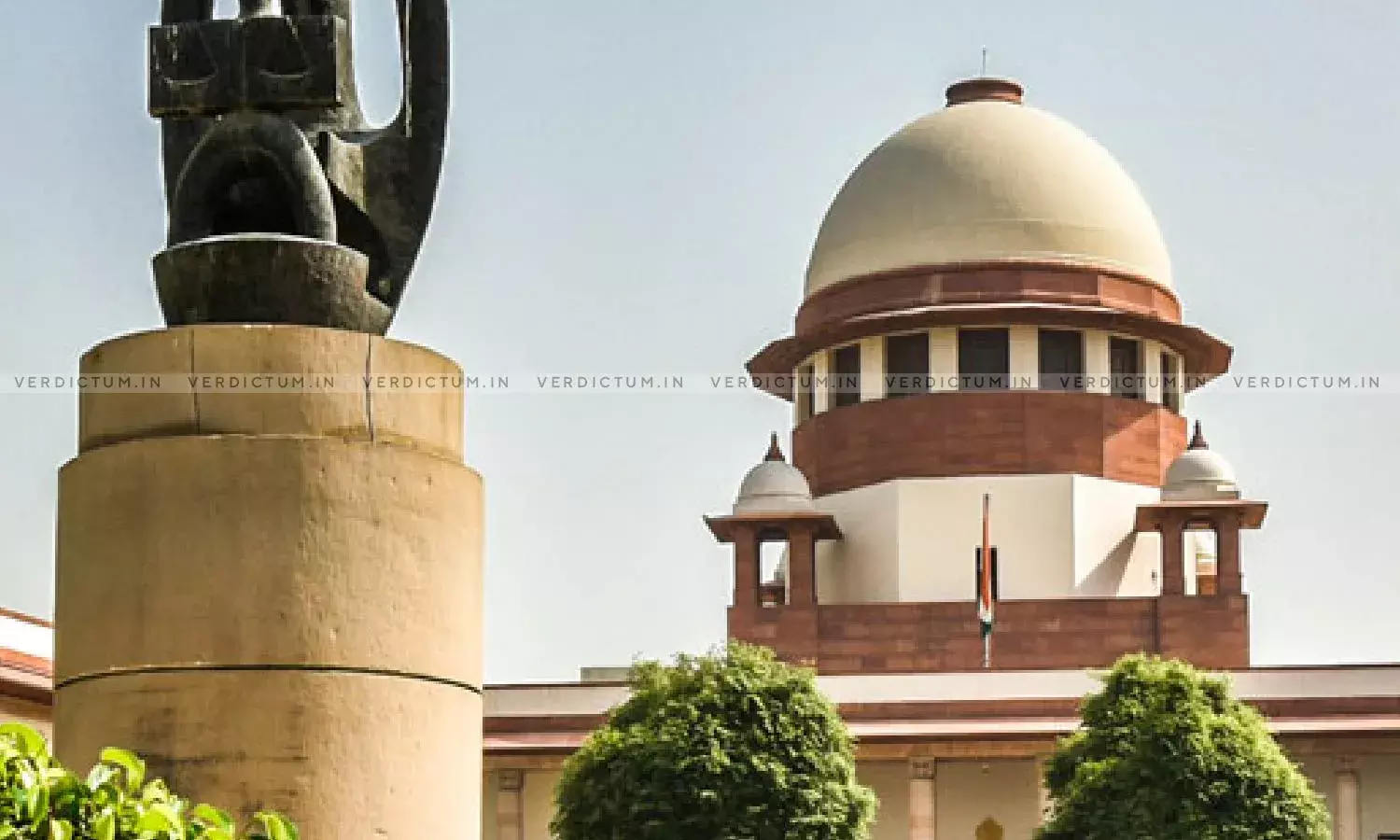Plea In SC Against Delhi HC's Order Dismissing Petition Challenging Notifications Over Exchange Of ₹2000 Currency Note
A plea has been filed in the Supreme Court against the Delhi High Court's verdict dismissing a petition challenging the notifications enabling the exchange of Rs 2,000 denomination currency notes without any requisition slip and ID proof, contending the measure gives an "open opportunity to legalize illegal money".
A division bench of the High Court had on May 29 dismissed a Public Interest Litigation (PIL) filed by Advocate Ashwini Kumar Upadhyay, who challenged the notifications by the Reserve Bank of India (RBI) and the State Bank of India (SBI) allowing the exchange of Rs 2,000 banknotes without having to furnish any document.
Upadhyay has now approached the apex court challenging the verdict of the High Court.
In his petition filed on Wednesday, he has claimed the High Court has failed to appreciate that the RBI notification of May 19 and SBI notification of May 20, permitting exchange of Rs 2,000 currency notes without obtaining any requisition slip and identity proof, is "manifestly arbitrary and irrational".
"RBI admits in para-2 of the notification that total value of Rs 2,000 banknotes in circulation have declined from Rs 6.73 lakh crore to 3.62 lakh crore. Petitioner submits that this 3.11 lakh crore has reached individual's locker and the rest has otherwise been hoarded by gangsters, kidnappers.... and corrupt government employees, public servants and politicians," said the plea, filed through Advocate Ashwani Kumar Dubey.
The plea further reads, "...while passing the Judgment, the High Court has failed to appreciate that the RBI Notification dated 19.5.2023 (Annexure P-1) and the SBI Notification dated 20.5.2023, (Annexure P-2) which permits exchange of Rs. 2000 banknotes without even obtaining any requisition slip and identity proof, is manifestly arbitrary and irrational and therefore violates Articles 14."
The petitioner has sought a direction to the RBI and the SBI to take appropriate steps to ensure that Rs 2,000 notes are deposited in bank accounts only.
He claimed rule of law guaranteed under Article 14, right to trade guaranteed under Article 19 and others can't be secured without curbing corruption, black money generation and 'benami' transaction but by this "recent flawed and arbitrary decision", the RBI is permitting banks to convert black money into white.
It has also been submitted, "...that corruption has devastating effects on equality, justice, liberty, fraternity unity national integration and basic rights guaranteed under Articles 14, 19 and 21. Even after 75 years of the independence, none of our districts are free from bribery, black money, benami transaction, disproportionate asset tax evasion, money laundering, profiteering, grain hoarding, food adulteration, human-drug trafficking, black marketing, cheating, fraud, mischief, forgery, dishonest misappropriation of property, criminal breach of trust, dishonestly inducing property, cheating by personation, concealment of property falsification of accounts, economic offences including corporate, capital market and forensic fraud and violation of accounting company taxation and information technology laws."
The plea said it is the duty of the RBI to identify black money holders and not to provide them with legal means to legitimise their black money.
"Petitioner submits that the high court has failed to appreciate that RBI notification dated May 19, 2023 and SBI notification dated May 20, 2023 gives an open opportunity to legalize illegal money, hence totally contrary to the aims and objects of the Prevention of Corruption Act, Benami Transactions Act, Money Laundering Act, Lokpal and Lokayukta Act, Central Vigilence Commission Act, Fugitive Economic Offenders Act and Black Money Act," it claimed.
As an interim relief, the petitioner has urged the apex court to stay the operation of these notifications in so for as they permit exchange of Rs 2,000 currency without obtaining any requistion slip and identity proof.
In its verdict, the High Court had observed it cannot be said that the decision is perverse or arbitrary or it encourages black money, money laundering, profiteering or abets corruption. It had said this is purely a policy decision of the government and courts should not sit as an appellate authority over the decision taken by the government.
The Reserve Bank of India (RBI) had defended before the High Court its notification, saying it is not demonetisation but a statutory exercise. It had said the decision was taken to allow exchange of Rs 2,000 denomination currency notes for operational convenience and the court cannot interfere in such matters.
Upadhyay had clarified before the High Court that he was not challenging the decision to withdraw Rs 2,000 banknote but assailing the exchange of the currency without any slip or identity proof.
On May 19, the RBI had announced withdrawal of Rs 2,000 currency notes from circulation, and said existing notes in circulation can either be deposited in bank accounts or exchanged by September 30. The bank notes in Rs 2,000 denomination will, however, continue to be a legal tender, the RBI had said in a statement.
In order to ensure operational convenience and to avoid disruption of regular activities of bank branches, the RBI said exchange of Rs 2,000 notes into bank notes of other denominations can be made up to a limit of Rs 20,000 at a time at any bank starting from May 23. In a communication to chief general managers of all its local head offices, the SBI had said the facility of exchange of Rs 2,000 notes by public up to a limit of Rs 20,000 at a time will be allowed without obtaining any requisition slip.
Cause Title: Ashwani Kumar Upadhyay v. Union of India & Ors.




